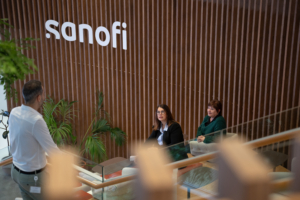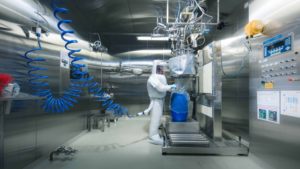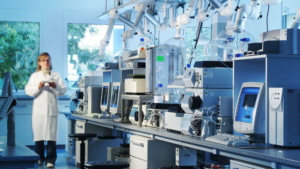GARDP wants five AMR breakers by 2025
GARDP has called up the global community to develop and deliver five new treatments that break antimicrobial resistance (AMR) by 2025.
Non profit organisation GARDP (Global Antibiotic Research and Development Partnership) said it wants to collaboratively develop five drugs that break antibiotic resistance by 2025, one more than announced at its launch by the World Health Organisation and the Drugs for Neglected Diseases initiative (DNDi). We are in a race against time to develop new antibiotics and make them accessible to the millions of people who need them," said Professor Ramanan Laxminarayan, Chair of the Global Antibiotic Research and Development Partnership (GARDP) at a conference at Geneva. "GARDP’s remarkable progress over the last three years in building strong partnerships and a talented team positions it well to meet this ambitious new goal. We need to work together with all stakeholders, including governments, academia and civil society, philanthropic organizations and the private sector, to make this goal a reality.
GARDP said its five treatments will focus on the priority bacterial pathogens identified by the World Health Organization (WHO). GARDP claimed "alarming levels of resistance" were reported in countries "of all income levels". According to the O’Neill report, drug-resistant bugs already cause at least 700,000 deaths globally per year, mostly in the global south who can’t afford new treatments. In developed countries, AMR mostly occurs through opportunistic infections at hospitals. According to the CDC, every year 25,000 US-Americans die due to antimicrobial resistance; the ECDC reported a raise from 25,000 to 33,000 deaths in Europe during the last decade. In India, hundreds of thousands of newborns are dying of sepsis, for which still there is no causative treatment available. GARDP said, AMR would be key to achieving Universal Health Coverage and meeting the Sustainable Development Goals.
German Research Minister Anja Karliczek said that AMR is a global problem that affects all countries, rich and poor alike. Because no country can solve this alone, joint efforts across different sectors are crucial. All nations must take responsibility and come together with innovative R&D solutions to address this global issue. This is why Germany strongly supports GARDP in bringing together all relevant stakeholders to achieve the ambitious goals that have been set. We encourage other countries to join in tackling AMR.
GARDP is an integral element of the WHO’s Global Action Plan on AMR that calls for new public-private partnerships to encourage research and development of new antimicrobial therapies. GARDP is calling on Member States, philanthropic and other global organizations to support 5 BY 25′ and contribute towards its target of €500m, which could allow it to bring five new treatments that address the most urgent public health needs to patients. GARDP announced it will launch its business plan to deliver its 5 BY 25′ goal on 28 October at the World Health Summit in Berlin.
Dr. Hanan H. Balkhy, Assistant Director-General for AMR Division at WHO said, WHO strongly welcomes the progress of GARDP to date and its new ambitious 5 BY 25′ goal which complements WHO’s Global Action Plan on AMR. We call on all key actors to support and collaborate with GARDP in line with the UN Interagency Coordination Group on AMR.
While there is a lot of push mechanisms which accelerate early development of compounds with novel mode of actions, commercial developers suffer from a lack in commercial incentives to develop new treatments. At 12th Berlin Conference on Life Sciences, Aleks Engels, Director of Novo’s REPAIR Impact Fund warned that since inception of the €135m fund, the share price of the 13 public anti-infectives developers has fallen by more than 50%. EU AMR biotech SME organisation BEAM Alliance believes that without a quick start, there will soon be no companies left to support.


 ©FabienMalot
©FabienMalot Lonza Group
Lonza Group Vetter Pharma
Vetter Pharma